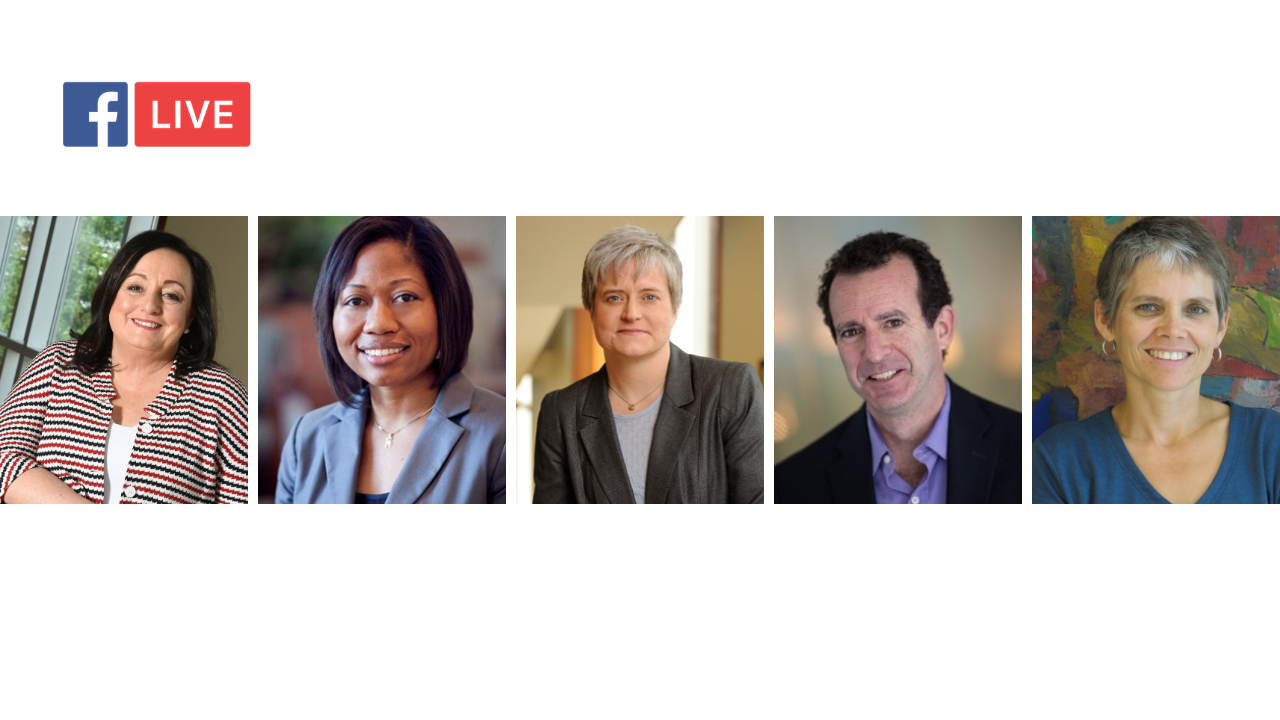Family separation is not a new problem, it echoes across Indigenous American cultures, or an American problem, for example there is the “stolen generation” in Australia. Here and now, “It’s a bipartisan issue that will not be corrected overnight. We have to commit as health care providers to demanding change because families’ long-term health and wellbeing are at risk,” says Nancy Glass, PhD, MPH, MS, RN, FAAN, professor at the Johns Hopkins School of Nursing.
In “The Border is Here: The Crisis is Real for Our Children and the Time is Now,” experts Nancy Glass, Carmen Alvarez, Paul Spiegel, and Kathryn Laughon describe the status quo and discuss the health and wellbeing implications for the children and families who have been separated. “We commend the ACLU for leading the charge, and the American Academy of Nursing for speaking out against this human rights violation,” said Dean Patricia Davidson, who moderated the event.
Key takeaways from the event
Family separation causes trauma, toxic stress, and adverse childhood experiences with lasting harm. The problem is not limited to the 545 children whose families the administration admits they cannot find, and officials are using COVID-19 public health orders to further an anti-immigration agenda.
Kathryn Laughon, PhD, RN, FAAN: Nurses should have some basic understanding of their patients’ legal rights. This is an important educational role for nurses, to make sure our patients’ fourth amendment rights are respected.
Carmen Alvarez, PHD, CRNP, CNM, RN, FAAN: We must be visible to our community and letting them know they can trust us, even in nonmedical spaces. We should provide undocumented immigrants with health insurance.
Undocumented Latinos Need Access to Care, Too
Nancy Glass, PhD, MPH, MS, RN, FAAN: We need to stop seeing asylum seekers as burden to our country and see them as amazing people from around the world, with skills, who want to be here and want to contribute.
Paul B. Spiegel, MD: There is an incredible amount of misinformation out there, but research shows that immigration is good for economies.
About the panelists
Carmen Alvarez, PHD, CRNP, CNM, RN, FAAN is an Assistant Professor at Johns Hopkins School of Nursing. She is a midwife, nurse practitioner, and investigates underserved ethnic-minority women with a history of trauma—specifically adverse childhood experiences and intimate partner violence.
Nancy Glass, PhD, MPH, MS, RN, FAAN is a Professor at Johns Hopkins School of Nursing, Associate Director for the Johns Hopkins Center for Global Health, and the Independence Chair in Nursing Education. She has extensive experience conducting clinical and community-based intervention research with diverse populations across multiple settings domestically and globally.
Paul B. Spiegel, MD is Director of the Center for Humanitarian Health and a Professor of the Practice at Johns Hopkins Bloomberg School of Public Health.
Kathryn Laughon, PhD, RN, FAAN is an Associate Professor of nursing at University of Virginia School of Nursing and Director of the PhD program. Her work focuses on issues related to intimate partner violence and its impact on women and children.
From Dean Patricia Davidson and the panelists:
We call on all nurses to care for immigrants, migrants, refugees and asylum seekers with compassion and respect for the dignity and worth of every individual. As nurses, we recognize the right of all people to seek a better life for any reason, including earning enough money, escaping oppression, or fleeing violence in all its forms. We acknowledge that those migrating for any reason and at all stages in their journeys are vulnerable to illness, exploitation, and additional trauma. We recognize that many vulnerable immigrants, migrants and asylum seekers are reluctant to or unable to access adequate health care due to fear, lack of money or insurance, or culture and social barriers resulting from structures of power and oppression in society, such as settler colonialism and white supremacy, homophobia and transmisia, xenophobia,and misogyny. Others, such as those held in detention camps or prevented from crossing the border due may have no access to adequate health care at all.
Resources
- Migrants, asylum seekers, refugees and immigrants: What’s the difference?
- Asylum Seekers & Refugees
- A Rapid Review of Evidence-Based Information, Best Practices and Lessons Learned in Addressing the Health Needs of Refugees and Migrants
- National Immigration Law Center
- Know Your Rights, Know Your Patients’ Rights
- Recommendations for Working with Immigrant Women
- Legal Services For Immigrants
